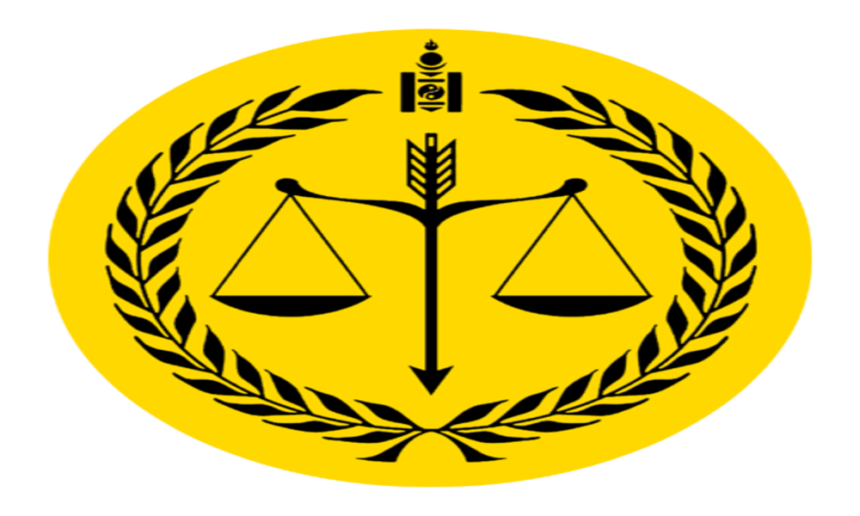The President, the Prime Minister and the Speaker of the Parliament are referred as “the three peaks of the state” (turiin gurvan undurlug) in the popular Mongolian media by implying the idea that the President is on the top of the judiciary. This reference is a simplification of how the country is governed today. This column covers a brief introduction to the power relations within the Mongolian judiciary and an opinion on the draft constitutional amendment.
Judicial General Council of Mongolia
The principle of independence of judges is proclaimed in Article 49 of the Constitution of 1992. According to the Constitution, the Judicial General Council (JGC) is entrusted with the protection of the independence of judges and courts.
JGC is responsible for selection, recruitment, promotion and education of judges. Disciplinary measures against judges are undertaken by the Disciplinary Committee at JGC. Judges are dismissed on the recommendation of JGC.
JGC is not only involved in the appointment and disciplinary proceedings against judges as an ‘independent’ body but has extensive administrative and budget powers. Firstly, JGC organises the resources necessary for the administration and management of the courts and appoints the officials who are responsible for the administration of the courts. Secondly, JGC is authorised by law to determine the policy for reform of the judiciary and to present bills to the incumbents who have right to initiate legislation. Thirdly, JGC introduces the annual budget of the courts to the Parliament. Once the budget has been approved by Parliament, JGC administers and controls the budget of the courts.
JGC consists of five members. Three members are nominated by judges’ councils from first instance and appellate courts and the Supreme Court. The two other members are selected by the Bar Association of Mongolia and the Ministry of Justice. All five members are appointed by the President of Mongolia. The Chairman of the Council is also appointed by the President of Mongolia.
The President of Mongolia
Over time, the presidency has evolved as de facto the Head of the Judiciary. The President has power to appoint judges on the recommendation of JCG. The current Law on Legal Status of Judges makes it clear that the President may reject JCG recommendations.
In addition to his extensive powers to appoint judges, including the Head of the Supreme Court and five members of JGC, including the Head of the JGC, the President is involved in dismissal of judges by approving recommendations of JGC. In this regard, there is a precedent, in that the President dismissed judges and attempts to overturn the Presidential decision remained unsuccessful (the dismissal of 13 judges and compulsory replacement of 34 judges the Presidential Decrees No. 198 and 199 of 2013).
In addition to his powers over the Judiciary, the President has powers to initiate legislation and to veto a parliamentary enactment. The President does not lead the executive branch of the Government, but he is elected directly by the people. In combination with the presidential powers to initiate legislation and to veto a parliamentary enactment, the popular mandate from the people gives the President a very powerful negotiating position when it comes to dealing with the Parliament. As a result, JGC is forced to rely on the Presidency, especially with respect to parliamentary approval of the annual budget of the courts. In the past, Mongolians have witnessed parliamentary debates on salary of judges, where the public image of judges was severely damaged. These debates mirror, in effect, the vulnerability of the judiciary to the pressures of special interest groups.
Draft constitutional amendment
Public debates on the draft constitutional amendment (Resolution No. 39 of 2 June 2017 of the State Great Khural) are currently being organised across the country.
The draft intends to limit the presidential powers to appoint judges. According to the draft, the appointment of judges of the Supreme Court, nominated by JGC, requires an approval from the Parliament and the President is obliged to acknowledge the approval within 72 hours.
The Head of the Supreme Court is elected by his or her peers, and the judges of courts other than Supreme Court are nominated by JGC. In both cases, the President is obliged to acknowledge the election or nomination within 72 hours.
With respect to the draft constitutional amendment, increasing the number of members of JGC from five to eleven is currently under discussion.
Outlook
The draft constitutional amendment does not intend to correct the developments that have made the judiciary dependent on politicians. The judges of the Supreme Court will be appointed with approval of the Parliament. The presidential powers to appoint the judges of the Supreme Court will be shifted to the Parliament according to the draft.
Overall, the Mongolian system can only be understood with the background of the communist regime, where each Ministry was organised similarly to that of an individual company. From a continental European perspective, JGC is, therefore, unique. It has the powers of an independent body, i.e. powers related to appointment and disciplinary proceedings of judges. At the same time, it fulfils administrative and policy formulation roles similar to that of a Justice Ministry, and it has budget formation and financial administration powers similar to that of a Finance Ministry.
The current system is clearly vulnerable to abuse. Many scandals surrounding the Judiciary and the removal of judges by the former President of Mongolia are a reflection of this vulnerability. A new system of thinking is therefore necessary, bearing in mind that public trust of the courts, judges and the independence of the judiciary are essential to peace and prosperity.












